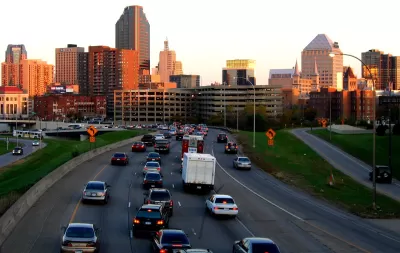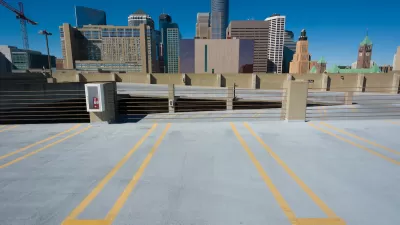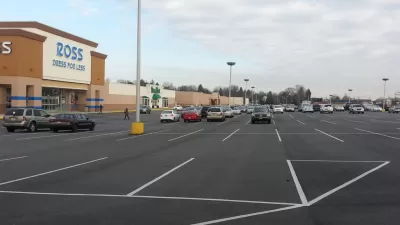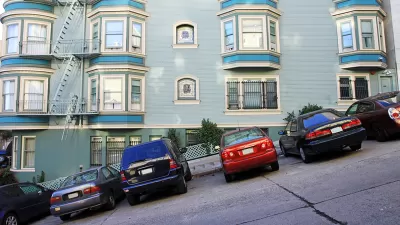The city is one of the first in the nation to completely eliminate parking mandates citywide.

In a move that goes beyond other efforts to reduce parking minimums in select parts of cities, St. Paul, Minnesota has entirely eliminated minimum off-street parking requirements, reports Frederick Melo. "St. Paul officials hope that tossing out parking mandates will open the door to new housing and businesses while moving the city closer to its goal of reducing vehicle miles traveled by 40 percent by the year 2040, and achieving carbon neutrality by 2050."
Developers can still provide off-street parking as they see fit, but zoning rules would no longer require certain numbers of spaces for different types of businesses. "Large developments will be required to offer users transit cards, traffic calming or other alternatives."
However, "[c]ritics have called lifting parking requirements burdensome and impractical, especially in areas with limited or no public transit. There’s also been some concern that the city might lose leverage in negotiations with developers over other public benefits attached to new real estate projects, such as installing bike racks."
With the construction of one parking spot costing anywhere from $5,000 for surface parking to upwards of $50,000 for structure parking, advocates call eliminating parking minimums "a free-market approach that opponents of government regulation should embrace."
FULL STORY: St. Paul eliminates parking minimums

Manufactured Crisis: Losing the Nation’s Largest Source of Unsubsidized Affordable Housing
Manufactured housing communities have long been an affordable housing option for millions of people living in the U.S., but that affordability is disappearing rapidly. How did we get here?

Americans May Be Stuck — But Why?
Americans are moving a lot less than they once did, and that is a problem. While Yoni Applebaum, in his highly-publicized article Stuck, gets the reasons badly wrong, it's still important to ask: why are we moving so much less than before?

Using Old Oil and Gas Wells for Green Energy Storage
Penn State researchers have found that repurposing abandoned oil and gas wells for geothermal-assisted compressed-air energy storage can boost efficiency, reduce environmental risks, and support clean energy and job transitions.

Minneapolis Bans Rent-Setting Software
Four cities have enacted restrictions on algorithmic software that can inflate rent costs.

Oakland to Add 244 New EV Chargers
Oakland plans to launch its new charging network at eight locations by the end of 2025.

Jane Goodall Inspires with Message of Hope, Resilience, and Environmental Action
Speaking in Pasadena, Jane Goodall offered a hopeful and inspirational message, urging global compassion, environmental responsibility, and the power of individual action to shape a better future.
Urban Design for Planners 1: Software Tools
This six-course series explores essential urban design concepts using open source software and equips planners with the tools they need to participate fully in the urban design process.
Planning for Universal Design
Learn the tools for implementing Universal Design in planning regulations.
Heyer Gruel & Associates PA
City of Moreno Valley
Institute for Housing and Urban Development Studies (IHS)
City of Grandview
Harvard GSD Executive Education
Salt Lake City
NYU Wagner Graduate School of Public Service
City of Cambridge, Maryland





























